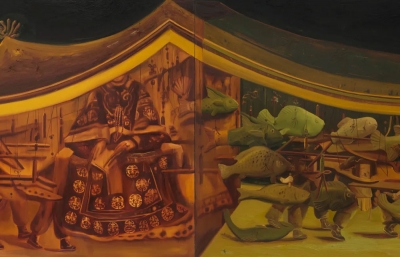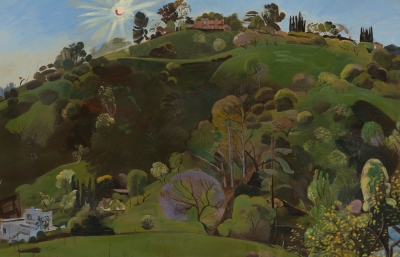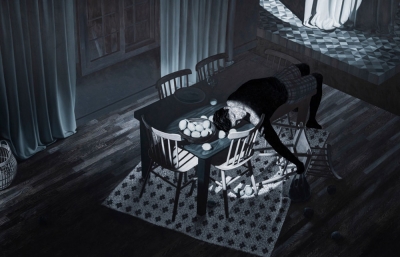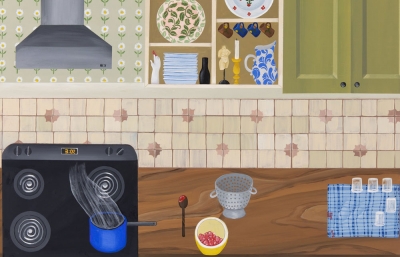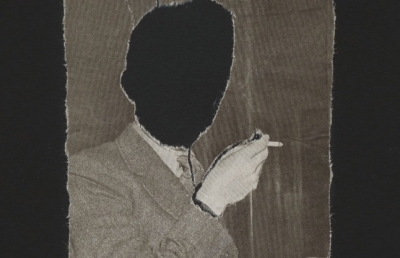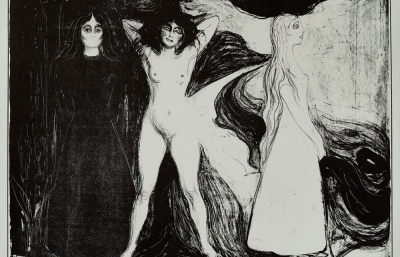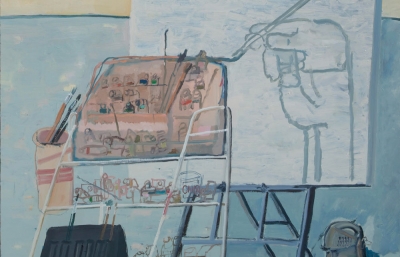Marianne Boesky Gallery is pleased to present Morning Thoughts, an exhibition of new work by Jammie Holmes. For his second solo exhibition with the gallery, Holmes imbues large-scale paintings of gardens and flowers with potent narratives of love and loss, hope and survival, community and resistance.
Throughout his intimate, intuitive paintings, Holmes captures poignant narratives of Black families, communities, and traditions in the American South. Drawing on memory and personal experience throughout his work, Holmes intersperses reflections on social, cultural, and political concerns with deeply felt meditations on family and home. With Morning Thoughts, Holmes probes the symbolic power of flowers. Mining traditions of landscape and still life, Holmes renders close-cropped daylilies in brilliant golds, burnt oranges, fiery reds and enchanting morning glories in rich, regal purples growing in gardens or lovingly arranged in vases.
The insistently floral body of work in Morning Thoughts represents a marked departure for an artist best known for paintings populated with portraits of friends, family, and Civil Rights activists. Figures, often ubiquitous in Holmes’s oeuvre, appear only intermittently in these paintings—as darkened silhouettes against white picket fences or as faces growing out of enormous flower blooms. Yet, these paintings still bear traces of Holmes’s signature visual motifs: birds and butterflies flit through the gardens of Black Butterfly (2024) and Morning Glory (2024) bearing the markings of a trio of flags that appear throughout his work—the Pan-African Flag, David Hammons’s African American Flag (1990), and a flag of Holmes’s own devising. In Fresh Picked (2024), a vase of cut daylilies and morning glories sits atop a stack of Holmes’s Book Fa Black Folks, a book—loosely based on W.E.B. du Bois’s The Souls of Black Folk—that first surfaced in Holmes’s work in Make the Revolution Irresistible, an exhibition of the artist’s work at the Modern at Museum of Fort Worth in 2023. In Daylily (2024), Holmes incorporates a traditional Baule figurine, a nod to his family’s West African heritage.
Flowers are a famously enduring subject in the history of Western painting. Through the religious imagery of the Renaissance, lilies denote the Virgin Mary’s purity. In Baroque vanitas paintings, cut flowers serve as a stark reminder of mortality. Monet and Matisse turned to botanical subjects to examine qualities of light and color. Surrealists incorporated floral motifs in their examination of dreams and metamorphosis. Georgia O’Keeffe deployed floral imagery in her close-cropped, nearly abstracted paintings to encourage the very act of looking. With his careful choice of floral subjects, Holmes evokes this sweeping history, appropriating the potent formal and symbolic potential of his flowers. Morning glories, as their name suggests, bloom in the cool light of early morning; their purpleblue flowers wilt by the time the sun sets that same evening. Daylilies, likewise, flower and die within the same day. Due to the nature of their blooming process, both morning glories and daylilies—flowers Holmes associates with his childhood and notions of home—have come to symbolize, at various turns, death and rebirth, the transience of time, the fleeting nature of life, new beginnings, and a spirit of resistance. The flowers in Holmes’s garden embody all of this allegorical power; they’re also an homage to his family and friends, to his heroes, to those who lost their lives too soon, to those who died fighting for freedom. With Morning Thoughts, Holmes paints a flower, perhaps, for every loss, for every success, for every memory of home, a flower for struggle, a flower for triumph.
Morning Thoughts takes its title from a 1981 Gil Scott-Heron song by the same name. Throughout the song’s soft, spoken-word lyrics Scott-Heron meditates on the magical potential felt in the moment when night quietly turns to day—on the possibilities that radiate in the first light of morning, as the morning glory and daylily buds open. With his newest body of work, Holmes captures this moment of possibility alongside the inevitable moments of loss that follow as flowers wilt, as color seeps away—the dichotomy of morning and mourning. Underneath all of this, Morning Thoughts embodies the resilience of Holmes, of his community: morning glory and daylily flowers may wilt and die by dusk, but the plants and their roots remain. With Morning Thoughts, Holmes reminds us that hope and loss go handin- hand—but beauty remains for those willing to see it, that flowers bloom again in the morning.









